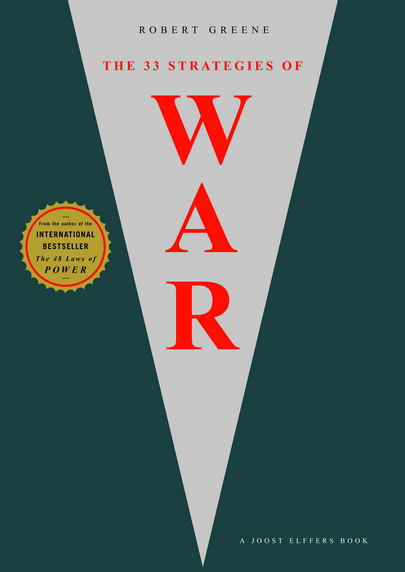
It’s a Robert Greene book, so you know it’s dense. And at over 13,000 words this writeup may seem like I covered the entire book but there’s tons more in there. If you want to buy a copy please click here.
“People who accuse you of being unfair, for example, who try to make you feel guilty, who talk about justice and morality, are trying to gain an advantage on the chessboard.”
- DECLARE WAR ON YOUR ENEMIES THE POLARITY STRATEGY
Life is endless battle and conflict, and you cannot fight effectively unless you can identify your enemies. People are subtle and evasive, disguising their intentions, pretending to be on your side. You need clarity. Learn to smoke out your enemies, to spot them by the signs and patterns that reveal hostility. Then, once you have them in your sights, inwardly declare war. As the opposite poles of a magnet create motion, your enemies–your opposites–can fill you with purpose and direction. As people who stand in your way, who represent what you loathe, people to react against, they are a source of energy. Do not be naive: with some enemies there can be no compromise, no middle ground.
Application:
Think of yourself as always about to go into battle. Everything depends on your frame of mind and on how you look at the world. A shift of perspective can transform you from a passive and confused mercenary into a motivated and creative fighter.
Everything in life conspires to push you into the center, and not just politically. The center is the realm of compromise. Getting along with other people is an important skill to have, but it comes with a danger: by always seeking the path of least resistance, the path of conciliation, you forget who you are, and you sink into the center with everyone else. Instead see yourself as a fighter, an outsider surrounded by enemies. Constant battle will keep you strong and alert. It will help to define what you believe in, both for yourself and for others. Do not worry about antagonizing people; without antagonism there is no battle, and without battle, there is no chance of victory. Do not be lured by the need to be liked: better to be respected, even feared.
People are usually good at hiding their hostility, but often they unconsciously give off signals showing that all is not what it seems. One of the closest friends and advisers of the Chinese Communist Party leader Mao Tse-tung was Lin Biao, a high-ranking member of the Politburo and possible successor to the chairman. In the late 1960s and early ’70s, though, Mao detected a change in Lin: he had become effusively friendly. Everyone praised Mao, but Lin’s praise was embarrassingly fervent. To Mao this meant that something was wrong. He watched Lin closely and decided that the man was plotting a takeover, or at the very least positioning himself for the top spot. And Mao was right: Lin was plotting busily. The point is not to mistrust all friendly gestures but to notice them. Register any change in the emotional temperature: unusual chumminess, a new desire to exchange confidences, excessive praise of you to third parties, the desire for an alliance that may make more sense for the other person than for you. Trust your instincts: if someone’s behavior seems suspicious, it probably is. It may turn out to be benign, but in the meantime it is best to be on your guard.
Understand: people tend to be vague and slippery because it is safer than outwardly committing to something. If you are the boss, they will mimic your ideas. Their agreement is often pure courtiership. Get them emotional; people are usually more sincere when they argue. If you pick an argument with someone and he keeps on mimicking your ideas, you may be dealing with a chameleon, a particularly dangerous type. Beware of people who hide behind a facade of vague abstractions and impartiality: no one is impartial. A sharply worded question, an opinion designed to offend, will make them react and take sides.
Avoidance of conflict becomes a habit, and you lose the taste for battle. Feeling guilty is pointless; it is not your fault you have enemies. Feeling wronged or victimized is equally futile. In both cases you are looking inward, concentrating on yourself and your feelings. Instead of internalizing a bad situation, externalize it and face your enemy. It is the only way out.
Being attacked is a sign that you are important enough to be a target. You should relish the attention and the chance to prove yourself. We all have aggressive impulses that we are forced to repress; an enemy supplies you with an outlet for these drives. At last you have someone on whom to unleash your aggression without feeling guilty.
Remember: there are always people out there who are more aggressive, more devious, more ruthless than you are, and it is inevitable that some of them will cross your path. You will have a tendency to want to conciliate and compromise with them. The reason is that such types are often brilliant deceivers who see the strategic value in charm or in seeming to allow you plenty of space, but actually their desires have no limit, and they are simply trying to disarm you. With some people you have to harden yourself, to recognize that there is no middle ground, no hope of conciliation. For your opponent your desire to compromise is a weapon to use against you. Know these dangerous enemies by their past: look for quick power grabs, sudden rises in fortune, previous acts of treachery. Once you suspect you are dealing with a Napoleon, do not lay down your arms or entrust them to someone else. You are the last line of your own defense.
Always keep the search for and use of enemies under control. It is clarity you want, not paranoia. It is the downfall of many tyrants to see an enemy in everyone. They lose their grip on reality and become hopelessly embroiled in the emotions their paranoia churns up. By keeping an eye on possible enemies, you are simply being prudent and cautious. Keep your suspicions to yourself, so that if you’re wrong, no one will know.
2. DO NOT FIGHT THE LAST WAR THE GUERRILLA-WAR-OF-THE-MIND STRATEGY
What most often weighs you down and brings you misery is the past, in the form of unnecessary attachments, repetitions of tired formulas, and the memory of old victories and defeats. You must consciously wage war against the past and force yourself to react to the present moment. Be ruthless on yourself; do not repeat the same tired methods. Sometimes you must force yourself to strike out in new directions, even if they involve risk. What you may lose in comfort and security, you will gain in surprise, making it harder for your enemies to tell what you will do. Wage guerrilla war on your mind, allowing no static lines of defense, no exposed citadels–make everything fluid and mobile.
Application:
Never take it for granted that your past successes will continue into the future. Actually, your past successes are your biggest obstacle: every battle, every war, is different, and you cannot assume that what worked before will work today. You must cut yourself loose from the past and open your eyes to the present. Your tendency to fight the last war may lead to your final war.
The problem, though, is not that we think of the solution only when it is too late. The problem is that we imagine that knowledge is what was lacking: if only we had known more, if only we had thought it through more thoroughly. That is precisely the wrong approach. What makes us go astray in the first place is that we are unattuned to the present moment, insensitive to the circumstances. We are listening to our own thoughts, reacting to things that happened in the past, applying theories and ideas that we digested long ago but that have nothing to do with our predicament in the present. More books, theories, and thinking only make the problem worse.
3. AMIDST THE TURMOIL OF EVENTS, DO NOT LOSE YOUR PRESENCE OF MIND THE COUNTERBALANCE STRATEGY
In the heat of battle, the mind tends to lose its balance. Too many things confront you at the same time–unexpected setbacks, doubts and criticisms from your own allies. There’s a danger of responding emotionally, with fear, depression, or frustration. It is vital to keep your presence of mind, maintaining your mental powers whatever the circumstances. You must actively resist the emotional pull of the moment–staying decisive, confident, and aggressive no matter what hits you. Make the mind tougher by exposing it to adversity. Learn to detach yourself from the chaos of the battlefield. Let others lose their heads; your presence of mind will steer you clear of their influence and keep you on course.
Application:
Presence of mind is a kind of counterbalance to mental weakness, to our tendency to get emotional and lose perspective in the heat of battle. Our greatest weakness is losing heart, doubting ourselves, becoming unnecessarily cautious. Being more careful is not what we need; that is just a screen for our fear of conflict and of making a mistake. What we need is double the resolve–an intensification of confidence. That will serve as a counterbalance. In moments of turmoil and trouble, you must force yourself to be more determined. Call up the aggressive energy you need to overcome caution and inertia. Any mistakes you make, you can rectify with more energetic action still. Save your carefulness for the hours of preparation, but once the fighting begins, empty your mind of doubts. Ignore those who quail at any setback and call for retreat. Find joy in attack mode. Momentum will carry you through.
Rationality rarely lasts past the next attack. Understand: your mind is weaker than your emotions. But you become aware of this weakness only in moments of adversity–precisely the time when you need strength. What best equips you to cope with the heat of battle is neither more knowledge nor more intellect. What makes your mind stronger, and more able to control your emotions, is internal discipline and toughness.
It is never good to lose your presence of mind, but you can use those moments when it is under threat to know how to act in the future. You must find a way to put yourself in the thick of battle, then watch yourself in action. Look for your own weaknesses, and think about how to compensate for them. People who have never lost their presence of mind are actually in danger: someday they will be taken by surprise, and the fall will be harsh. All great generals, from Julius Caesar to Patton, have at some point lost their nerve and then have been the stronger for winning it back. The more you have lost your balance, the more you will know about how to right yourself. You do not want to lose your presence of mind in key situations, but it is a wise course to find a way to make your enemies lose theirs. Take what throws you off balance and impose it on them. Make them act before they are ready. Surprise them–nothing is more unsettling than the unexpected need to act. Find their weakness, what makes them emotional, and give them a double dose of it. The more emotional you can make them, the farther you will push them off course.
4. CREATE A SENSE OF URGENCY AND DESPERATION THE DEATH-GROUND STRATEGY
You are your own worst enemy. You waste precious time dreaming of the future instead of engaging in the present. Since nothing seems urgent to you, you are only half involved in what you do. The only way to change is through action and outside pressure. Put yourself in situations where you have too much at stake to waste time or resources–if you cannot afford to lose, you won’t. Cut your ties to the past; enter unknown territory where you must depend on your wits and energy to see you through. Place yourself on “death ground,” where your back is against the wall and you have to fight like hell to get out alive.
Application:
A sense of urgency comes from a powerful connection to the present. Instead of dreaming of rescue or hoping for a better future, you have to face the issue at hand. Fail and you perish. People who involve themselves completely in the immediate problem are intimidating; because they are focusing so intensely, they seem more powerful than they are. Their sense of urgency multiplies their strength and gives them momentum.
Because you think you have options, you never involve yourself deeply enough in one thing to do it thoroughly, and you never quite get what you want. Sometimes you need to run your ships aground, burn them, and leave yourself just one option: succeed or go down. Make the burning of your ships as real as possible–get rid of your safety net. Sometimes you have to become a little desperate to get anywhere.
Death is impossible for us to fathom: it is so immense, so frightening, that we will do almost anything to avoid thinking about it. Society is organized to make death invisible, to keep it several steps removed. That distance may seem necessary for our comfort, but it comes with a terrible price: the illusion of limitless time, and a consequent lack of seriousness about daily life. We are running away from the one reality that faces us all.
If the feeling of having nothing to lose can propel you forward, it can do the same for others. You must avoid any conflict with people in this position. Maybe they are living in terrible conditions or, for whatever reason, are suicidal; in any case they are desperate, and desperate people will risk everything in a fight. This gives them a huge advantage. Already defeated by circumstances, they have nothing to lose. You do. Leave them alone.
5. AVOID THE SNARES OF GROUPTHINK THE COMMAND-AND-CONTROL STRATEGY
The problem in leading any group is that people inevitably have their own agendas. If you are too authoritarian, they will resent you and rebel in silent ways. If you are too easygoing, they will revert to their natural selfishness and you will lose control. You have to create a chain of command in which people do not feel constrained by your influence yet follow your lead. Put the right people in place–people who will enact the spirit of your ideas without being automatons. Make your commands clear and inspiring, focusing attention on the team, not the leader. Create a sense of participation, but do not fall into Groupthink–the irrationality of collective decision making. Make yourself look like a paragon of fairness, but never relinquish unity of command.
Application:
What determines your failure or success is your style of leadership and the chain of command that you design. If your orders are vague and halfhearted, by the time they reach the field they will be meaningless. Let people work unsupervised and they will revert to their natural selfishness: they will see in your orders what they want to see, and their behavior will promote their own interests.
No good can ever come of divided leadership. If you are ever offered a position in which you will have to share command, turn it down, for the enterprise will fail and you will be held responsible. Better to take a lower position and let the other person have the job. It is always wise, however, to take advantage of your opponent’s faulty command structure. Never be intimidated by an alliance of forces against you: if they share leadership, if they are ruled by committee, your advantage is more than enough. In fact, do as Napoleon did and seek out enemies with that kind of command structure. You cannot fail to win.
6. SEGMENT YOUR FORCES THE CONTROLLED-CHAOS STRATEGY
The critical elements in war are speed and adaptability–the ability to move and make decisions faster than the enemy. But speed and adaptability are hard to achieve today. We have more information than ever before at our fingertips, making interpretation and decision making more difficult. We have more people to manage, those people are more widely spread, and we face more uncertainty. Learn from Napoleon, warfare’s greatest master: speed and adaptability come from flexible organization. Break your forces into independent groups that can operate and make decisions on their own. Make your forces elusive and unstoppable by infusing them with the spirit of the campaign, giving them a mission to accomplish, and then letting them run.
Application:
the future belongs to groups that are fluid, fast, and nonlinear. Your natural tendency as a leader may be to want to control the group, to coordinate its every movement, but that will just tie you to the past and to the slow-moving armies of history. It takes strength of character to allow for a margin of chaos and uncertainty–to let go a little–but by decentralizing your army and segmenting it into teams, you will gain in mobility what you lose in complete control. And mobility is the greatest force multiplier of them all. It allows you to both disperse and concentrate your army, throwing
Since the structure of your army has to be suited to the people who compose it, the rule of decentralization is flexible: some people respond better to rigid authority. Even if you run a looser organization, there may be times when you will have to tighten it and give your officers less freedom. Wise generals set nothing in stone, always retaining the ability to reorganize their army to fit the times and their changing needs.
7. TRANSFORM YOUR WAR INTO A CRUSADE MORALE STRATEGIES
The secret to motivating people and maintaining their morale is to get them to think less about themselves and more about the group. Involve them in a cause, a crusade against a hated enemy. Make them see their survival as tied to the success of the army as a whole. In a group in which people have truly bonded, moods and emotions are so contagious that it becomes easy to infect your troops with enthusiasm. Lead from the front: let your soldiers see you in the trenches, making sacrifices for the cause. That will fill them with the desire to emulate and please you. Make both rewards and punishments rare but meaningful. Remember: a motivated army can work wonders, making up for any lack of material resources.
Application:
Above all else, then, pay attention to your staff, to those you recruit to your cause. Many will pretend to share your beliefs, but your first battle will show that all they wanted was a job. Soldiers like these are mercenaries and will get you nowhere. True believers are what you want; expertise and impressive resumes matter less than character and the capacity for sacrifice. Recruits of character will give you a staff already open to your influence, making morale and discipline infinitely easier to attain. This core personnel will spread the gospel for you, keeping the rest of the army in line. As far as possible in this secular world, make battle a religious experience, an ecstatic involvement in something transcending the present.
you must aim indirectly at people’s emotions: get them to laugh or cry over something that seems unrelated to you or to the issue at hand. Emotions are contagious–they bring people together and make them bond. Then you can play them like a piano, moving them from one emotion to the other. Oratory and eloquent pleas only irritate and insult us; we see right through them. Motivation is subtler than that. By advancing indirectly, setting up your emotional appeal, you will get inside instead of just scratching the surface.
If morale is contagious, so is its opposite: fear and discontent can spread through your troops like wildfire. The only way to deal with them is to cut them off before they turn into panic and rebellion.
8. PICK YOUR BATTLES CAREFULLY THE PERFECT-ECONOMY STRATEGY
We all have limitations–our energies and skills will take us only so far. Danger comes from trying to surpass our limits. Seduced by some glittering prize into overextending ourselves, we end up exhausted and vulnerable. You must know your limits and pick your battles carefully. Consider the hidden costs of a war: time lost, political goodwill squandered, an embittered enemy bent on revenge. Sometimes it is better to wait, to undermine your enemies covertly rather than hitting them straight on. If battle cannot be avoided, get them to fight on your terms. Aim at their weaknesses; make the war expensive for them and cheap for you. Fighting with perfect economy, you can outlast even the most powerful foe.
Application:
Understand: the more you want the prize, the more you must compensate by examining what getting it will take. Look beyond the obvious costs and think about the intangible ones: the goodwill you may squander by waging war, the fury of the loser if you win, the time that winning may take, your debt to your allies. You can always wait for a better time; you can always try something more in line with your resources. Remember: history is littered with the corpses of people who ignored the costs. Save yourself unnecessary battles and live to fight another day.
no person or group is completely either weak or strong. Every army, no matter how invincible it seems, has a weak point, a place left unprotected or undeveloped. Size itself can be a weakness in the end. Meanwhile even the weakest group has something it can build on, some hidden strength. Your goal in war is not simply to amass a stockpile of weapons, to increase your firepower so you can blast your enemy away. That is wasteful, expensive to build up, and leaves you vulnerable to guerrilla-style attacks. Going at your enemies blow by blow, strength against strength, is equally unstrategic. Instead you must first assess their weak points: internal political problems, low morale, shaky finances, overly centralized control, their leader’s megalomania.
There can never be any value in fighting uneconomically, but it is always a wise course to make your opponent waste as much of his resources as possible.
9. TURN THE TABLES THE COUNTERATTACK STRATEGY
Moving first–initiating the attack–will often put you at a disadvantage: you are exposing your strategy and limiting your options. Instead discover the power of holding back and letting the other side move first, giving you the flexibility to counterattack from any angle. If your opponents are aggressive, bait them into a rash attack that will leave them in a weak position. Learn to use their impatience, their eagerness to get at you, as a way to throw them off balance and bring them down. In difficult moments do not despair or retreat: any situation can be turned around. If you learn how to hold back, waiting for the right moment to launch an unexpected counterattack, weakness can become strength.
Application:
Most of us only know how to play either offensively or defensively. Either we go into attack mode, charging our targets in a desperate push to get what we want, or we try frantically to avoid conflict and, if it is forced on us, to ward off our enemies as best we can. Neither approach works when it excludes the other. Making offense our rule, we create enemies and risk acting rashly and losing control of our own behavior, but constant defensiveness backs us into a corner, becomes a bad habit. In either case we are predictable. Instead consider a third option, the Napoleonic way. At times you seem vulnerable and defensive, getting your opponents to disregard you as a threat, to lower their guard. When the moment is right and you sense an opening, you switch to the attack. Make your aggression controlled and your weakness a ploy to disguise your intentions. In a dangerous moment, when those around you see only doom and the need to retreat, that is when you smell an opportunity. By playing weak you can seduce your aggressive enemies to come at you full throttle. Then catch them off guard by switching to the offense when they least expect it. Mixing offense and defense in this fluid fashion, you will stay one step ahead of your inflexible opponents. The best blows are the ones they never see coming.
Aggression is deceptive: it inherently hides weakness. Aggressors cannot control their emotions. They cannot wait for the right moment, cannot try different approaches, cannot stop to think about how to take their enemies by surprise. In that first wave of aggression, they seem strong, but the longer their attack goes on, the clearer their underlying weakness and insecurity become.
The counterattack principle is infinitely applicable to any competitive environment or form of conflict, since it is based on certain truths of human nature. We are inherently impatient creatures. We find it hard to wait; we want our desires to be satisfied as quickly as possible.
An enemy seems powerful because he has a particular strength or advantage. Maybe it’s money and resources; maybe it’s the size of his army or of his territory; maybe, more subtly, it’s his moral standing and reputation. Whatever his strength might be, it is actually a potential weakness, simply because he relies on it: neutralize it and he is vulnerable. Your task is to put him in a situation in which he cannot use his advantage.
The counterattack strategy cannot be applied in every situation: there will always be times when it is better to initiate the attack yourself, gaining control by putting your opponents on the defensive before they have time to think. Look at the details of the situation. If the enemy is too smart to lose patience and attack you, or if you have too much to lose by waiting, go on the offensive.
10. CREATE A THREATENING PRESENCE DETERRENCE STRATEGIES
The best way to fight off aggressors is to keep them from attacking you in the first place. To accomplish this you must create the impression of being more powerful than you are. Build up a reputation: You’re a little crazy. Fighting you is not worth it. You take your enemies with you when you lose. Create this reputation and make it credible with a few impressive–impressively violent–acts. Uncertainty is sometimes better than overt threat: if your opponents are never sure what messing with you will cost, they will not want to find out. Play on people’s natural fears and anxieties to make them think twice.
Application:
Instead of trying to avoid conflict or whining about the injustice of it all, consider an option developed over the centuries by military leaders and strategists to deal with violent and acquisitive neighbors: reverse intimidation. This art of deterrence rests on three basic facts about war and human nature: First, people are more likely to attack you if they see you as weak or vulnerable. Second, they cannot know for sure that you’re weak; they depend on the signs you give out, through your behavior both present and past. Third, they are after easy victories, quick and bloodless. That is why they prey on the vulnerable and weak.
You must take control over people’s perceptions of you by playing with appearances, mystifying and misleading them. Like Jackson, it is best to mix audacity with unpredictability and unorthodoxy and act boldly in moments of weakness or danger. That will distract people from any holes in your armor, and they’ll be afraid there may be more to you than meets the eye.
When we are under attack, the temptation is to get emotional, to tell the aggressors to stop, to make threats as to what we’ll do if they keep going. That puts us in a weak position: we’ve revealed both our fears and our plans, and words rarely deter aggressors. Sending them a message through a third party or revealing it indirectly through action is much more effective. That way you signal that you are already maneuvering against them. Keep the threat veiled: if they can only glimpse what you are up to, they will have to imagine the rest. Making them see you as calculating and strategic will have a chilling effect on their desires to harm or attack you. It is not worth the risk to find out what you may be up to.
In general, you have to keep your attempts at intimidation under control. Be careful not to become intoxicated by the power fear brings: use it as a defense in times of danger, not as your offense of choice. In the long run, frightening people creates enemies, and if you fail to back up your tough reputation with victories, you will lose credibility. If your opponent gets angry enough to decide to play the same game back at you, you may also escalate a squabble into a retaliatory war. Use this strategy with caution.
11. TRADE SPACE FOR TIME THE NONENGAGEMENT STRATEGY
Retreat in the face of a strong enemy is a sign not of weakness but of strength. By resisting the temptation to respond to an aggressor, you buy yourself valuable time–time to recover, to think, to gain perspective. Let your enemies advance; time is more important than space. By refusing to fight, you infuriate them and feed their arrogance. They will soon overextend themselves and start making mistakes. Time will reveal them as rash and you as wise. Sometimes you can accomplish most by doing nothing.
Application:
War is deceptive: you may think that you are strong and that you are making advances against an enemy, but time may show that you were actually marching into great danger. You can never really know, since our immersion in the present deprives us of true perspective. The best you can do is to rid yourself of lazy, conventional patterns of thinking. Advancing is not always good; retreating is not always weak. In fact, in moments of danger or trouble, refusing to fight is often the best strategy: by disengaging from the enemy, you lose nothing that is valuable in the long run and gain time to turn inward, rethink your ideas, separate the true believers from the hangers-on. Time becomes your ally. By doing nothing outwardly, you gain inner strength, which will translate into tremendous power later, when it is time to act.
Your task as a strategist is simple: to see the differences between yourself and other people, to understand yourself, your side, and the enemy as well as you can, to get more perspective on events, to know things for what they are. In the hubbub of daily life, this is not easy–in fact, the power to do it can come only from knowing when and how to retreat. If you are always advancing, always attacking, always responding to people emotionally, you have no time to gain perspective. Your strategies will be weak and mechanical, based on things that happened in the past or to someone else.
Retreat must never be an end in itself; at some point you have to turn around and fight. If you don’t, retreat is more accurately called surrender: the enemy wins. Combat is in the long run unavoidable. Retreat can only be temporary.
12. LOSE BATTLES BUT WIN THE WAR GRAND STRATEGY
Everyone around you is a strategist angling for power, all trying to promote their own interests, often at your expense. Your daily battles with them make you lose sight of the only thing that really matters: victory in the end, the achievement of greater goals, lasting power. Grand strategy is the art of looking beyond the battle and calculating ahead. It requires that you focus on your ultimate goal and plot to reach it. In grand strategy you consider the political ramifications and long-term consequences of what you do. Instead of reacting emotionally to people, you take control, and make your actions more dimensional, subtle, and effective. Let others get caught up in the twists and turns of the battle, relishing their little victories. Grand strategy will bring you the ultimate reward: the last laugh.
Application:
In grand strategy you look beyond the moment, beyond your immediate battles and concerns. You concentrate instead on what you want to achieve down the line. Controlling the temptation to react to events as they happen, you determine each of your actions according to your ultimate goals. You think in terms not of individual battles but of a campaign.
To become a grand strategist in life, you must follow the path of Alexander. First, clarify your life–decipher your own personal riddle–by determining what it is you are destined to achieve, the direction in which your skills and talents seem to push you. Visualize yourself fulfilling this destiny in glorious detail. As Aristotle advised, work to master your emotions and train yourself to think ahead: “This action will advance me toward my goal, this one will lead me nowhere.” Guided by these standards, you will be able to stay on course.
Clear long-term objectives give direction to all of your actions, large and small. Important decisions become easier to make. If some glittering prospect threatens to seduce you from your goal, you will know to resist it. You can tell when to sacrifice a pawn, even lose a battle, if it serves your eventual purpose. Your eyes are focused on winning the campaign and nothing else. Your goals must be rooted in reality. If they are simply beyond your means, essentially impossible for you to realize, you will grow discouraged, and discouragement can quickly escalate into a defeatist attitude. On the other hand, if your goals lack a certain dimension and grandeur, it can be hard to stay motivated. Do not be afraid to be bold. In the large sense, you are working out for yourself what Alexander experienced as his destiny and what Friedrich Nietzsche called your “life’s task”–the thing toward which your natural leanings and aptitudes, talents and desires, seem to point you. Assigning yourself a life task will inspire and guide you.
13. KNOW YOUR ENEMY THE INTELLIGENCE STRATEGY
The target of your strategies should be less the army you face than the mind of the man or woman who runs it. If you understand how that mind works, you have the key to deceiving and controlling it. Train yourself to read people, picking up the signals they unconsciously send about their innermost thoughts and intentions. A friendly front will let you watch them closely and mine them for information. Beware of projecting your own emotions and mental habits onto them; try to think as they think. By finding your opponents’ psychological weaknesses, you can work to unhinge their minds.
Application:
if you let narcissism act as a screen between you and other people, you will misread them and your strategies will misfire. You must be aware of this and struggle to see others dispassionately. Every individual is like an alien culture. You must get inside his or her way of thinking, not as an exercise in sensitivity but out of strategic necessity. Only by knowing your enemies can you ever hope to vanquish them.
your real enemy is your opponent’s mind. His armies, his resources, his intelligence, can all be overcome if you can fathom his weakness, the emotional blind spot through which you can deceive, distract, and manipulate him. The most powerful army in the world can be beaten by unhinging the mind of its leader.
14. OVERWHELM RESISTANCE WITH SPEED AND SUDDENNESS THE BLITZKRIEG STRATEGY
In a world in which many people are indecisive and overly cautious, the use of speed will bring you untold power. Striking first, before your opponents have time to think or prepare, will make them emotional, unbalanced, and prone to error. When you follow with another swift and sudden maneuver, you will induce further panic and confusion. This strategy works best with a setup, a lull–your unexpected action catches your enemy off guard. When you strike, hit with unrelenting force. Acting with speed and decisiveness will garner you respect, awe, and irresistible momentum.
Application:
We live in a world in which speed is prized above almost all else, and acting faster than the other side has itself become the primary goal. But most often people are merely in a hurry, acting and reacting frantically to events, all of which makes them prone to error and wasting time in the long run. In order to separate yourself from the pack, to harness a speed that has devastating force, you must be organized and strategic. First, you prepare yourself before any action, scanning your enemy for weaknesses. Then you find a way to get your opponents to underestimate you, to lower their guard. When you strike unexpectedly, they will freeze up. When you hit again, it is from the side and out of nowhere. It is the unanticipated blow that makes the biggest impact.
Slowness can have great value, particularly as a setup. To appear slow and deliberate, even a little foolish, will lull your enemies, infecting them with a sleepy attitude. Once their guard is down, an unexpected blow from the side will knock them out. Your use of slowness and speed, then, should be deliberate and controlled, never a natural tempo that you fall into. In general, when facing a fast enemy, the only true defense is to be as fast or faster. Only speed can neutralize speed. Setting up a rigid defense, as the shah did against the Mongols, only plays into the hands of the swift and mobile.
15. CONTROL THE DYNAMIC FORCING STRATEGIES
People are constantly struggling to control you–getting you to act in their interests, keeping the dynamic on their terms. The only way to get the upper hand is to make your play for control more intelligent and insidious. Instead of trying to dominate the other side’s every move, work to define the nature of the relationship itself. Shift the conflict to terrain of your choice, altering the pace and stakes to suit you. Maneuver to control your opponents’ minds, pushing their emotional buttons, and compelling them to make mistakes. If necessary, let them feel they are in control in order to get them to lower their guard. If you control the overall direction and framing of the battle, anything they do will play into your hands.
Application:
Control can be aggressive or passive. It can be an immediate push on the enemy, making him back up and lose the initiative. It can be playing possum, getting the enemy to lower his guard, or baiting him into a rash attack. The artist of control weaves both of these into a devastating pattern–hitting, backing off, baiting, overwhelming.
Everything in this world conspires to put you on the defensive. At work, your superiors may want the glory for themselves and will discourage you from taking the initiative. People are constantly pushing and attacking you, keeping you in react mode. You are continually reminded of your limitations and what you cannot hope to accomplish. You are made to feel guilty for this and that. Such defensiveness on your part can become a self-fulfilling prophecy. Before anything, you need to liberate yourself from this feeling. By acting boldly, before others are ready, by moving to seize the initiative, you create your own circumstances rather than simply waiting for what life brings you. Your initial push alters the situation, on your terms. People are made to react to you, making you seem larger and more powerful than may be the case. The respect and fear you inspire will translate into offensive power, a reputation that precedes you. Like Rommel, you must also have a touch of madness: ready to disorient and confuse for its own sake, to keep advancing no matter the circumstance. It is up to you–be constantly defensive or make others feel it instead.
Your enemies will naturally choose to fight on terrain that is to their liking, that allows them to use their power to best advantage. Cede them such power and you end up fighting on their terms. Your goal is to subtly shift the conflict to terrain of your choice. You accept the battle but alter its nature. If it is about money, shift it to something moral. If your opponents want to fight over a particular issue, reframe the battle to encompass something larger and more difficult for them to handle. If they like a slow pace, find a way to quicken it. You are not allowing your enemies to get comfortable or fight in their usual way. And an enemy who is lured onto unfamiliar terrain is one who has lost control of the dynamic. Once such control slips from his hands, he will compromise, retreat, make mistakes, and effect his own destruction.
To control the dynamic, you must be able to control yourself and your emotions. Getting angry and lashing out will only limit your options. And in conflict, fear is the most debilitating emotion of all. Even before anything has happened, your fear puts you on your heels, cedes the initiative to the enemy.
Any effort to seem not to control a situation, to refuse to influence a relationship, is in fact a form of control. By ceding power to others, you have gained a kind of passive authority that you can use later for your own purposes. You are also the one determining who has control by relinquishing it to the other side. There is no escape from the control dynamic. Those who say they are doing so are playing the most insidious control game of all.
16. HIT THEM WHERE IT HURTS THE CENTER-OF-GRAVITY STRATEGY
Everyone has a source of power on which he or she depends. When you look at your rivals, search below the surface for that source, the center of gravity that holds the entire structure together. That center can be their wealth, their popularity, a key position, a winning strategy. Hitting them there will inflict disproportionate pain. Find what the other side most cherishes and protects–that is where you must strike.
Application:
Often what separates a mediocre general from a superior one is not their strategies or maneuvers but their vision–they simply look at the same problem from a different angle. Freed from the stranglehold of convention, the superior general naturally hits on the right strategy.
17. DEFEAT THEM IN DETAIL THE DIVIDE-AND-CONQUER STRATEGY
When you look at your enemies, do not be intimidated by their appearance. Instead look at the parts that make up the whole. By separating the parts, sowing dissension and division from within, you can weaken and bring down even the most formidable foe. In setting up your attack, work on their minds to create internal conflict. Look for the joints and links, the things that connect the people in a group or connect one group to another. Division is weakness, and the joints are the weakest part of any structure. When you are facing troubles or enemies, turn a large problem into small, eminently defeatable parts.
Application:
There will be times in life when you face a powerful enemy–a destructive opponent seeking your undoing, a slew of seemingly insurmountable problems hitting you at once. It is natural to feel intimidated in these situations, which may paralyze you into inaction or make you wait in the vain hope that time will bring a solution. But it is a law of war that by allowing the larger force to come to you, at full strength and unified, you increase the odds against you; a large and powerful army on the move will gain an irresistible momentum if left unchecked. You will find yourself quickly overwhelmed. The wisest course is to take a risk, meet the enemy before it comes to you, and try to blunt its momentum by forcing or enticing it to divide. And the best way to make an enemy divide is to occupy the center.
rational arguments go in one ear and out the other. No one is changed; you are preaching to the converted. In the war to win people’s attention and influence them, you must first separate them from whatever ties them to the past and makes them resist change. You must realize that these ties are generally not rational but emotional. By appealing to people’s emotions, you can make your targets see the past in a new light, as something tyrannical, boring, ugly, immoral. Now you have room to infiltrate new ideas, shift people’s vision, make them respond to a new sense of their self-interest, and sow the seeds for a new cause, a new bond. To make people join you, separate them from their past. When you size up your targets, look for what connects them to the past, the source of their resistance to the new.
In attacking a group in order to sow division, be careful that your blow is not too strong, for it can have the opposite effect, causing people to unite in times of great danger.
18. EXPOSE AND ATTACK YOUR OPPONENT’S SOFT FLANK THE TURNING STRATEGY
When you attack people directly, you stiffen their resistance and make your task that much harder. There is a better way: distract your opponents’ attention to the front, then attack them from the side, where they least expect it. By hitting them where they are soft, tender, and unprotected, you create a shock, a moment of weakness for you to exploit. Bait people into going out on a limb, exposing their weakness, then rake them with fire from the side. The only way to get stubborn opponents to move is to approach them indirectly.
Application:
Individuals often show their flank, signal their vulnerability, by its opposite, the front they show most visibly to the world. This front can be an aggressive personality, a way of dealing with people by pushing them around. Or it can be some obvious defense mechanism, a focus on keeping out intruders to maintain stability in their lives. It can be their most cherished beliefs and ideas; it can be the way they make themselves liked. The more you get people to expose this front, to show more of themselves and the directions they tend to move in, the more their unprotected flanks will come into focus–unconscious desires, gaping insecurities, precarious alliances, uncontrollable compulsions.
Life is full of hostility–some of it overt, some clever and under-handed. Conflict is inevitable; you will never have total peace. Instead of imagining you can avoid these clashes of will, accept them and know that the way you deal with them will decide your success in life. What good is it to win little battles, to succeed in pushing people around here and there, if in the long run you create silent enemies who will sabotage you later? At all cost you must gain control of the impulse to fight your opponents directly. Instead occupy their flank.
Think of people’s ego and vanity as a kind of front. When they are attacking you and you don’t know why, it is often because you have inadvertently threatened their ego, their sense of importance in the world. Whenever possible, you must work to make people feel secure about themselves. Again, use whatever works: subtle flattery, a gift, an unexpected promotion, an offer of alliance, a presentation of you and they as equals, a mirroring of their ideas and values. All these things will make them feel anchored in their frontal position relative to the world, lowering their defenses and making them like you.
When people present their ideas and arguments, they often censor themselves, trying to appear more conciliatory and flexible than is actually the case. If you attack them directly from the front, you end up not getting very far, because there isn’t much there to aim at. Instead try to make them go further with their ideas, giving you a bigger target. Do this by standing back, seeming to go along, and baiting them into moving rashly ahead. (You can also make them emotional, pushing their buttons, getting them to say more than they had wanted to.) They will expose themselves on a weak salient, advancing an indefensible argument or position that will make them look ridiculous. The key is never to strike too early. Give your opponents time to hang themselves.
19. ENVELOP THE ENEMY THE ANNIHILATION STRATEGY
People will use any kind of gap in your defenses to attack you or revenge themselves on you. So offer no gaps. The secret is to envelop your opponents–create relentless pressure on them from all sides, dominate their attention, and close off their access to the outside world. Make your attacks unpredictable to create a vaporous feeling of vulnerability. Finally, as you sense their weakening resolve, crush their willpower by tightening the noose. The best encirclements are psychological–you have surrounded their minds.
Application:
Our minds thrive on the sense that there is possibility and strategic room to maneuver.
The battles of daily life occur not on a map but in a kind of abstract space defined by people’s ability to maneuver, act against you, limit your power, and cut into your time to respond. Give your opponents any room in this abstract or psychological space and they will exploit it, no matter how powerful you are or how brilliant your strategies–so make them feel surrounded. Shrink their possibilities of action and close off their escape routes. Just as the inhabitants of a city under siege may slowly lose their minds, your opponents will be maddened by their lack of room to maneuver against you.
The danger of envelopment is that unless it is completely successful, it may leave you in a vulnerable position. You have announced your plans. The enemy knows that you are trying to annihilate it, and unless you can quickly deliver your knockout punch, it will work furiously not only to defend itself but to destroy you–for now your destruction is its only safeguard. Some armies that have failed in their envelopments have found themselves later encircled by their enemies. Use this strategy only when you have a reasonable chance of bringing it to the conclusion you desire.
20. MANEUVER THEM INTO WEAKNESS THE RIPENING-FOR-THE-SICKLE STRATEGY
No matter how strong you are, fighting endless battles with people is exhausting, costly, and unimaginative. Wise strategists generally prefer the art of maneuver: before the battle even begins, they find ways to put their opponents in positions of such weakness that victory is easy and quick. Bait enemies into taking positions that may seem alluring but are actually traps and blind alleys. If their position is strong, get them to abandon it by leading them on a wild-goose chase. Create dilemmas: devise maneuvers that give them a choice of ways to respond–all of them bad. Channel chaos and disorder in their direction. Confused, frustrated, and angry opponents are like ripe fruit on the bough: the slightest breeze will make them fall.
Application:
The maneuver-warfare philosophy was codified by Sun-tzu in his Art of War, written in China’s Warring States period, in the fifth to third century B.C.–over two hundred years of escalating cycles of warfare in which a state’s very survival depended on its army and strategists. To Sun-tzu and his contemporaries, it was obvious that the costs of war went far beyond its body counts: it entailed a loss of resources and political goodwill and a lowering of morale among soldiers and citizens. These costs would mount over time until eventually even the greatest warrior nation would succumb to exhaustion. But through adroit maneuvering a state could spare itself such high costs and still emerge victorious. An enemy who had been maneuvered into a weak position would succumb more easily to psychological pressure; even before the battle had begun, it had imperceptibly started to collapse and would surrender with less of a fight.
Never say you are strong, show you are, by making a contrast between yourself and your inconsistent or moderate opponents.
The greatest power you can have in any conflict is the ability to confuse your opponent about your intentions. Confused opponents do not know how or where to defend themselves; hit them with a surprise attack and they are pushed off balance and fall. To accomplish this you must maneuver with just one purpose: to keep them guessing.
There is neither point nor honor in seeking direct battle for its own sake. That kind of fighting, however, may have value as part of a maneuver or strategy. A sudden envelopment or powerful frontal blow when the enemy is least expecting it can be crushing. The only danger in maneuver is that you give yourself so many options that you yourself get confused. Keep it simple–limit yourself to the options you can control.
21. NEGOTIATE WHILE ADVANCING THE DIPLOMATIC-WAR STRATEGY
People will always try to take from you in negotiation what they could not get from you in battle or direct confrontation. They will even use appeals to fairness and morality as a cover to advance their position. Do not be taken in: negotiation is about maneuvering for power or placement, and you must always put yourself in the kind of strong position that makes it impossible for the other side to nibble away at you during your talks. Before and during negotiations, you must keep advancing, creating relentless pressure and compelling the other side to settle on your terms. The more you take, the more you can give back in meaningless concessions. Create a reputation for being tough and uncompromising, so that people are back on their heels before they even meet you.
Application:
Just as you must always put yourself in the strongest position before battle, so it is with negotiation. If you are weak, use negotiations to buy yourself time, to delay battle until you are ready; be conciliatory not to be nice but to maneuver. If you are strong, take as much as you can before and during negotiations–then later you can give back some of what you took, conceding the things you least value to make yourself look generous. Do not worry about your reputation or about creating distrust. It is amazing how quickly people will forget your broken promises when you are strong and in a position to offer them something in their self-interest.
Sometimes in life you will find yourself holding the weak hand, the hand without any real leverage. At those times it is even more important to keep advancing. By demonstrating strength and resolve and maintaining the pressure, you cover up your weaknesses and gain footholds that will let you manufacture leverage for yourself.
Understand: if you are weak and ask for little, little is what you will get. But if you act strong, making firm, even outrageous demands, you will create the opposite impression: people will think that your confidence must be based on something real.
In negotiation as in war, you must not let yourself get carried away: there is a danger in advancing too far, taking too much, to the point where you create an embittered enemy who will work for revenge.
22. KNOW HOW TO END THINGS THE EXIT STRATEGY
You are judged in this world by how well you bring things to an end. A messy or incomplete conclusion can reverberate for years to come, ruining your reputation in the process. The art of ending things well is knowing when to stop, never going so far that you exhaust yourself or create bitter enemies that embroil you in conflict in the future. It also entails ending on the right note, with energy and flair. It is not a question of simply winning the war but the way you win it, the way your victory sets you up for the next round. The height of strategic wisdom is to avoid all conflicts and entanglements from which there are no realistic exits.
Application:
The worst way to end anything–a war, a conflict, a relationship–is slowly and painfully. The costs of such an ending run deep: loss of self-confidence, unconscious avoidance of conflict the next time around, the bitterness and animosity left breeding–it is all an absurd waste of time. Before entering any action, you must calculate in precise terms your exit strategy.
in any venture, your tendency to think in terms of winning or losing, success or failure, is dangerous. Your mind comes to a stop, instead of looking ahead. Emotions dominate the moment: a smug elation in winning, dejection and bitterness in losing. What you need is a more fluid and strategic outlook on life.
23. WEAVE A SEAMLESS BLEND OF FACT AND FICTION MISPERCEPTION STRATEGIES
Since no creature can survive without the ability to see or sense what is going on around it, you must make it hard for your enemies to know what is going on around them, including what you are doing. Disturb their focus and you weaken their strategic powers. People’s perceptions are filtered through their emotions; they tend to interpret the world according to what they want to see. Feed their expectations, manufacture a reality to match their desires, and they will fool themselves. The best deceptions are based on ambiguity, mixing fact and fiction so that the one cannot be disentangled from the other. Control people’s perceptions of reality and you control them.
Application:
In a competitive world, deception is a vital weapon that can give you a constant advantage. You can use it to distract your opponents, send them on goose chases, waste valuable time and resources in defending attacks that never come.
In war, where the stakes are so high, there is no moral taint in using deception. It is simply an added weapon to create an advantage, much as some animals use camouflage and other tricks to help them survive. To refuse this weapon is a form of unilateral disarmament, giving the other side a clearer view of the field–an advantage that can translate into victory. And there is no morality or goodness in losing a war.
To be caught in a deception is dangerous. If you don’t know that your cover is blown, now, suddenly, your enemies have more information than you do and you become their tool. If the discovery of your deceit is public, on the other hand, your reputation takes a blow, or worse: the punishments for spying are severe. You must use deception with utmost caution, then, employing the least amount of people as possible, to avoid the inevitable leaks. You should always leave yourself an escape route, a cover story to protect you should you be exposed. Be careful not to fall in love with the power that deception brings; the use of it must always be subordinate to your overall strategy and kept under control. If you become known as a deceiver, try being straightforward and honest for a change. That will confuse people–because they won’t know how to read you, your honesty will become a higher form of deception.
24. TAKE THE LINE OF LEAST EXPECTATION THE ORDINARY-EXTRAORDINARY STRATEGY
People expect your behavior to conform to known patterns and conventions. Your task as a strategist is to upset their expectations. Surprise them and chaos and unpredictability–which they try desperately to keep at bay–enter their world, and in the ensuing mental disturbance, their defenses are down and they are vulnerable. First, do something ordinary and conventional to fix their image of you, then hit them with the extraordinary. The terror is greater for being so sudden. Never rely on an unorthodox strategy that worked before–it is conventional the second time around. Sometimes the ordinary is extraordinary because it is unexpected.
Application:
Using your knowledge of your enemies’ psychology and way of thinking, you must calculate your opening moves to be what they least expect. The line of least expectation is the line of least resistance; people cannot defend themselves against what they cannot foresee.
as children and young adults, we are taught to conform to certain codes of behavior and ways of doing things. We learn that being different comes with a social price. But there is a greater price to pay for slavishly conforming: we lose the power that comes from our individuality, from a way of doing things that is authentically our own. We fight like everyone else, which makes us predictable and conventional.
When striving to create the extraordinary, always remember: what is crucial is the mental process, not the image or maneuver itself. What will truly shock and linger long in the mind are those works and ideas that grow out of the soil of the ordinary and banal, that are unexpected, that make us question and contest the very nature of the reality we see around us. Most definitely in art, the unconventional can only be strategic.
25. OCCUPY THE MORAL HIGH GROUND THE RIGHTEOUS STRATEGY
In a political world, the cause you are fighting for must seem more just than the enemy’s. Think of this as moral terrain that you and the other side are fighting over; by questioning your enemies’ motives and making them appear evil, you can narrow their base of support and room to maneuver. Aim at the soft spots in their public image, exposing any hypocrisies on their part. Never assume that the justice of your cause is self-evident; publicize and promote it. When you yourself come under moral attack from a clever enemy, do not whine or get angry; fight fire with fire. If possible, position yourself as the underdog, the victim, the martyr. Learn to inflict guilt as a moral weapon.
Application:
you cannot win wars without public and political support, but people will balk at joining your side or cause unless it seems righteous and just.
Wars are most often fought out of self-interest: a nation goes to war to protect itself against an invading, or potentially dangerous, enemy or to seize a neighbor’s land or resources. Morality is sometimes a component in the decision–in a holy war or crusade, for example–but even here self-interest usually plays a role; morality is often just a cover for the desire for more territory, more riches, more power.
A moral offensive has a built-in danger: if people can tell what you are doing, your righteous stance may disgust and alienate them. Unless you are facing a vicious enemy, it is best to use this strategy with a light touch and never seem shrill. Moral battles are for public consumption, and you must constantly gauge their effect, lowering or raising the heat accordingly.
26. DENY THEM TARGETS THE STRATEGY OF THE VOID
The feeling of emptiness or void–silence, isolation, nonengagement with others–is for most people intolerable. As a human weakness, that fear offers fertile ground for a powerful strategy: give your enemies no target to attack, be dangerous but elusive and invisible, then watch as they chase you into the void. This is the essence of guerrilla warfare. Instead of frontal battles, deliver irritating but damaging side attacks and pinprick bites. Frustrated at their inability to use their strength against your vaporous campaign, your opponents will grow irrational and exhausted. Make your guerrilla war part of a grand political cause–a people’s war–that crests in an irresistible revolution.
Application:
A guerrilla strategy is extremely hard to counter, which is what makes it so effective. If you find yourself in a fight with guerrillas and you use conventional methods to fight them, you play into their hands; winning battles and taking territory means nothing in this kind of war. The only effective counterstrategy is to reverse the guerrillas’ reversal, neutralizing their advantages. You must refuse them the freedom of time and space they need for their mayhem. You must work to isolate them–physically, politically, and morally. Above all, you must never respond in a graduated manner, by stepping up your forces bit by bit, as the United States did in the Vietnam War. You need a quick, decisive victory over such an opponent. If this seems impossible, it is better to pull out while you can than to sink into the protracted war the guerrilla fighter is trying to lure you into.
27. SEEM TO WORK FOR THE INTERESTS OF OTHERS WHILE FURTHERING YOUR OWN THE ALLIANCE STRATEGY
The best way to advance your cause with the minimum of effort and bloodshed is to create a constantly shifting network of alliances, getting others to compensate for your deficiencies, do your dirty work, fight your wars, spend energy pulling you forward. The art is in choosing those allies who fit the needs of the moment and fill the gaps in your power. Give them gifts, offer them friendship, help them in time of need–all to blind them to reality and put them under subtle obligation to you. At the same time, work to sow dissension in the alliances of others, weakening your enemies by isolating them. While forming convenient coalitions, keep yourself free of negative entanglements.
Application:
Almost all of us instinctively understand the importance of allies. Because we operate by feel and emotion more often than by strategy, however, we frequently make the worst kinds of alliances. A common mistake is to think that the more allies we have, the better; but quality is more important than quantity.
To survive and advance at all in life, we find ourselves constantly having to use other people for some purpose, some need–to obtain resources we cannot get on our own, to give us protection of some sort, to compensate for a skill or talent we do not possess. As a description of human relationships, however, the word “use” has ugly connotations, and in any case we always like to make our actions seem nobler than they are. We prefer to think of these interactions as relationships of assistance, partnering, friendship. This is not a matter of mere semantics; it is the source of a dangerous confusion that will harm you in the end. When you look for an ally, you have a need, an interest you want met. This is a practical, strategic matter upon which your success depends. If you allow emotions and appearances to infect the kinds of alliances you form, you are in danger. The art of forming alliances depends on your ability to separate friendship from need.
If you play the Alliance Game, so will those around you, and you cannot take their behavior personally–you must keep dealing with them. But there are some types with whom any kind of alliance will harm you. You can often recognize them by their overeagerness to pursue you: they will make the first move, trying to blind you with alluring offers and glittering promises. To protect yourself from being used in a negative way, always look at the tangible benefits you will gain from this alliance. If the benefits seem vague or hard to realize, think twice about joining forces. Look at your prospective allies’ past for signs of greed or of using people without giving in return. Be wary of people who speak well, have apparently charming personalities, and talk about friendship, loyalty, and selflessness: they are most often con artists trying to prey on your emotions. Keep your eye on the interests involved on both sides, and never let yourself be distracted from them.
28. GIVE YOUR RIVALS ENOUGH ROPE TO HANG THEMSELVES THE ONE-UPMANSHIP STRATEGY
Life’s greatest dangers often come not from external enemies but from our supposed colleagues and friends, who pretend to work for the common cause while scheming to sabotage us and steal our ideas for their gain. Although, in the court in which you serve, you must maintain the appearance of consideration and civility, you also must learn to defeat these people. Work to instill doubts and insecurities in such rivals, getting them to think too much and act defensively. Bait them with subtle challenges that get under their skin, triggering an overreaction, an embarrassing mistake. The victory you are after is to isolate them. Make them hang themselves through their own self-destructive tendencies, leaving you blameless and clean.
Application:
Your goal is to get these rivals to put their ambition and selfishness on display. The way to do this is to pique their latent but powerful insecurities–make them worry that people do not like them, that their position is unstable, that their path to the top is not clear.
The worst colleagues and comrades are often the ones with inflated egos, who think everything they do is right and worthy of praise. Subtle mockery and disguised parody are brilliant ways of one-upping these types. You seem to be complimenting them, your style or ideas even imitating theirs, but the praise has a sting in its tail: Are you imitating them to poke fun at them? Does your praise hide criticism? These questions get under their skin, making them vaguely insecure about themselves.
Sometimes outright war is best–when, for example, you can crush your enemies by encirclement. In the ongoing relationships of daily life, though, one-upmanship is usually the wiser strategy. It may sometimes seem therapeutic to outfight your rivals directly; it may sometimes be appealing to send an overtly intimidating message. But the momentary gains you may earn with a direct approach will be offset by the suspicions you arouse in your colleagues, who will worry that someday you will strong-arm them, too. In the long run, it is more important to secure good feelings and maintain appearances. Wise courtiers always seem to be paragons of civilized behavior, encasing their iron fist in a velvet glove.
29. TAKE SMALL BITES THE FAIT ACCOMPLI STRATEGY
If you seem too ambitious, you stir up resentment in other people; overt power grabs and sharp rises to the top are dangerous, creating envy, distrust, and suspicion. Often the best solution is to take small bites, swallow little territories, playing upon people’s relatively short attention spans. Stay under the radar and they won’t see your moves. And if they do, it may already be too late; the territory is yours, a fait accompli. You can always claim you acted out of self-defense. Before people realize it, you have accumulated an empire.
Application:
It is not easy to make one’s way in this world, to strive with energy to get what you want without incurring the envy or antipathy of others who may see you as aggressive and ambitious, someone to thwart. The answer is not to lower your ambitions but rather to disguise them. A piecemeal approach to conquest of anything is perfect for these political times, the ultimate mask of aggression.
The problem that many of us face is that we have great dreams and ambitions. Caught up in the emotions of our dreams and the vastness of our desires, we find it very difficult to focus on the small, tedious steps usually necessary to attain them. We tend to think in terms of giant leaps toward our goals. But in the social world as in nature, anything of size and stability grows slowly.
Should you see or suspect that you yourself are being attacked bite by bite, your only counterstrategy is to prevent any further progress or faits accomplis. A quick and forceful response will usually be enough to discourage the nibblers, who often resort to this strategy out of weakness and cannot afford many battles.
30. PENETRATE THEIR MINDS COMMUNICATION STRATEGIES
Communication is a kind of war, its field of battle the resistant and defensive minds of the people you want to influence. The goal is to advance, to penetrate their defenses and occupy their minds. Anything else is ineffective communication, self-indulgent talk. Learn to infiltrate your ideas behind enemy lines, sending messages through little details, luring people into coming to the conclusions you desire and into thinking they’ve gotten there by themselves. Some you can trick by cloaking your extraordinary ideas in ordinary forms; others, more resistant and dull, must be awoken with extreme language that bristles with newness. At all cost, avoid language that is static, preachy, and overly personal. Make your words a spark for action, not passive contemplation.
Application:
To communicate in a deep and real way, you must bring people back to their childhood, when they were less defensive and more impressed by sounds, images, actions, a world of preverbal communication. It requires speaking a kind of language composed of actions, all strategically designed to effect people’s moods and emotions, what they can least control.
you may have brilliant ideas, the kind that could revolutionize the world, but unless you can express them effectively, they will have no force, no power to enter people’s minds in a deep and lasting way.
31. DESTROY FROM WITHIN THE INNER-FRONT STRATEGY
A war can only really be fought against an enemy who shows himself. By infiltrating your opponents’ ranks, working from within to bring them down, you give them nothing to see or react against–the ultimate advantage. From within, you also learn their weaknesses and open up possibilities of sowing internal dissension. So hide your hostile intentions. To take something you want, do not fight those who have it, but rather join them–then either slowly make it your own or wait for the moment to stage a coup d’etat. No structure can stand for long when it rots from within.
Application:
It is hard to make your way in the world alone. Alliances can help, but if you are starting out, it is hard to get the right people interested in an alliance with you; there is nothing in it for them. The wisest strategy is often to join the group that can best serve your long-term interests, or the one with which you have the most affinity. Your advantage here is that, unlike the other members, you have no sentimental attachment to the group; your only allegiance is to yourself.
There are always likely to be disgruntled people in your own group who will be liable to turning against you from the inside. The worst mistake is to be paranoid, suspecting one and all and trying to monitor their every move. Your only real safeguard against conspiracies and saboteurs is to keep your troops satisfied, engaged in their work, and united by their cause. They will tend to police themselves and turn in any grumblers who are trying to foment trouble from within. It is only in unhealthy and decaying bodies that cancerous cells can take root.
32. DOMINATE WHILE SEEMING TO SUBMIT THE PASSIVE-AGGRESSION STRATEGY
Any attempt to bend people to your will is a form of aggression. And in a world where political considerations are paramount, the most effective form of aggression is the best-hidden one: aggression behind a compliant, even loving exterior. To follow the passive-aggressive strategy, you must seem to go along with people, offering no resistance. But actually you dominate the situation. You are noncommittal, even a little helpless, but that only means that everything revolves around you. Some people may sense what you are up to and get angry. Don’t worry–just make sure you have disguised your aggression enough that you can deny it exists. Do it right and they will feel guilty for accusing you. Passive aggression is a popular strategy; you must learn how to defend yourself against the vast legions of passive-aggressive warriors who will assail you in your daily life.
Application:
Although the phrase “passive aggression” has negative connotations for most of us, as conscious strategy passive-aggressive behavior offers an insidiously powerful way of manipulating people and waging personal war.
it is never wise to seem too eager for power, wealth, or fame. Your ambition may carry you to the top, but you will not be liked and will find your unpopularity a problem. Better to disguise your maneuvers for power: you do not want it but have found it forced upon you. Being passive and making others come to you is a brilliant form of aggression.
The reversal of passive aggression is aggressive passivity, presenting an apparently hostile face while inwardly staying calm and taking no unfriendly action. The purpose here is intimidation: perhaps you know you are the weaker of the two sides and hope to discourage your enemies from attacking you by presenting a blustery front. Taken in by your appearance, they will find it hard to believe that you do not intend to do anything. In general, presenting yourself as the opposite of what you really are and intend can be a useful way of disguising your strategies.
33. SOW UNCERTAINTY AND PANIC THROUGH ACTS OF TERROR THE CHAIN-REACTION STRATEGY
Terror is the ultimate way to paralyze a people’s will to resist and destroy their ability to plan a strategic response. Such power is gained through sporadic acts of violence that create a constant feeling of threat, incubating a fear that spreads throughout the public sphere. The goal in a terror campaign is not battlefield victory but causing maximum chaos and provoking the other side into desperate overreaction. Melting invisibly into the population, tailoring their actions for the mass media, the strategists of terror create the illusion that they are everywhere and therefore that they are far more powerful than they really are. It is a war of nerves. The victims of terror must not succumb to fear or even anger; to plot the most effective counterstrategy, they must stay balanced. In the face of a terror campaign, one’s rationality is the last line of defense.
Application:
we are all are extremely susceptible to the emotions of those around us. It is often hard for us to perceive how deeply we are affected by the moods that can pass through a group. This is what makes the use of terror so effective and so dangerous: with a few well-timed acts of violence, a handful of assassins can spark all kinds of corrosive thoughts and uncertainties.
The reverse of terrorism would be direct and symmetrical war, a return to the very origins of warfare, to fighting that is up-front and honest, a simple test of strength against strength–essentially an archaic and useless strategy for modern times.

I also recommend reading Greene’s The 48 Laws of Power. However, a good writeup of that book is here: http://48laws-of-power.blogspot.com/ and will save you time and money.
If you want to buy a copy of The 33 Strategies of War please click here.

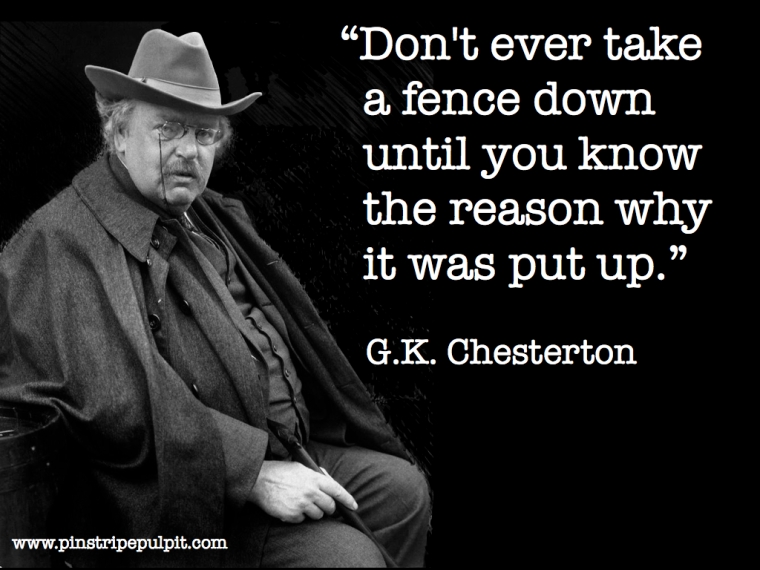


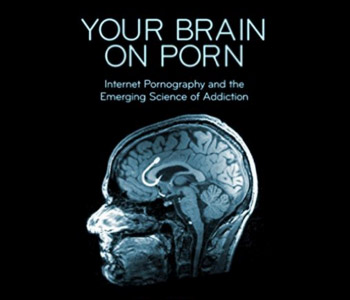
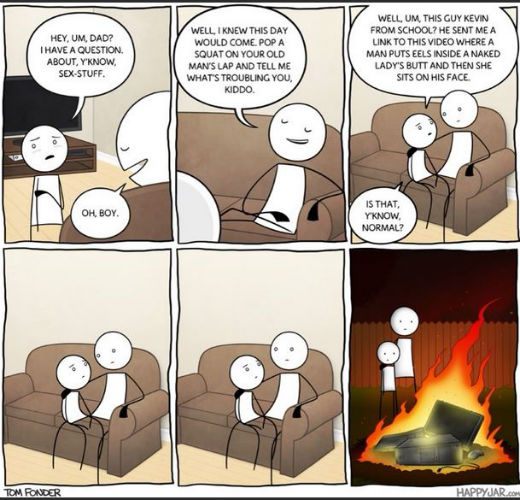



 Pictured: “Superior Man” David Deida
Pictured: “Superior Man” David Deida
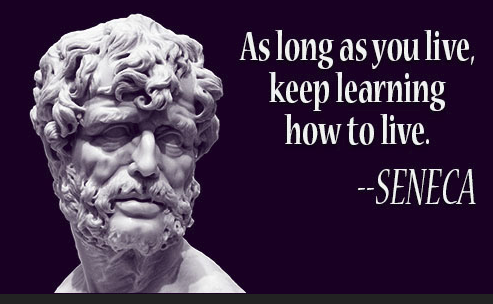




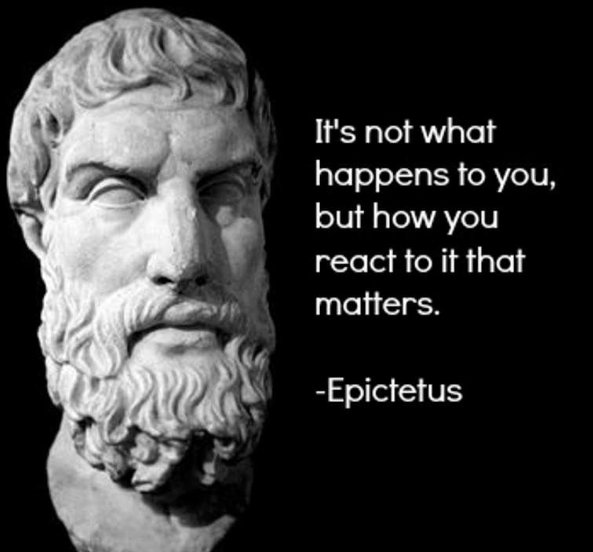







You must be logged in to post a comment.